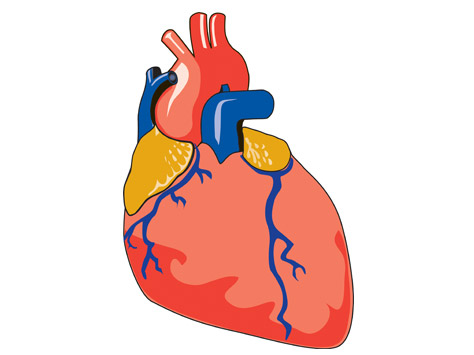Angina and Heart attack
|
Angina is the name which doctors give chest pain which arises from inadequate blood supply to the heart.
Angina was first described by William Heberdon in the 17th century. He described a sense of tightening or pressure in the chest which radiated to the jaw or the arms or back associated with exertion and relieved with rest. Some people have typical angina - that is exertional chest tightness or pressure which is relieved with rest or by administration of GTN medication. Some people have symptoms which fit with angina but which do not occur on exertion. If these occur at nighttime then they are often called Prinzmetal's angina. Some patients with angina have narrowings of the coronary arteries whcih supply the heart muscle with blood. However some patients may have completely normal arteries. When this occurs we call the condition Syndrome X. Useful Links |
